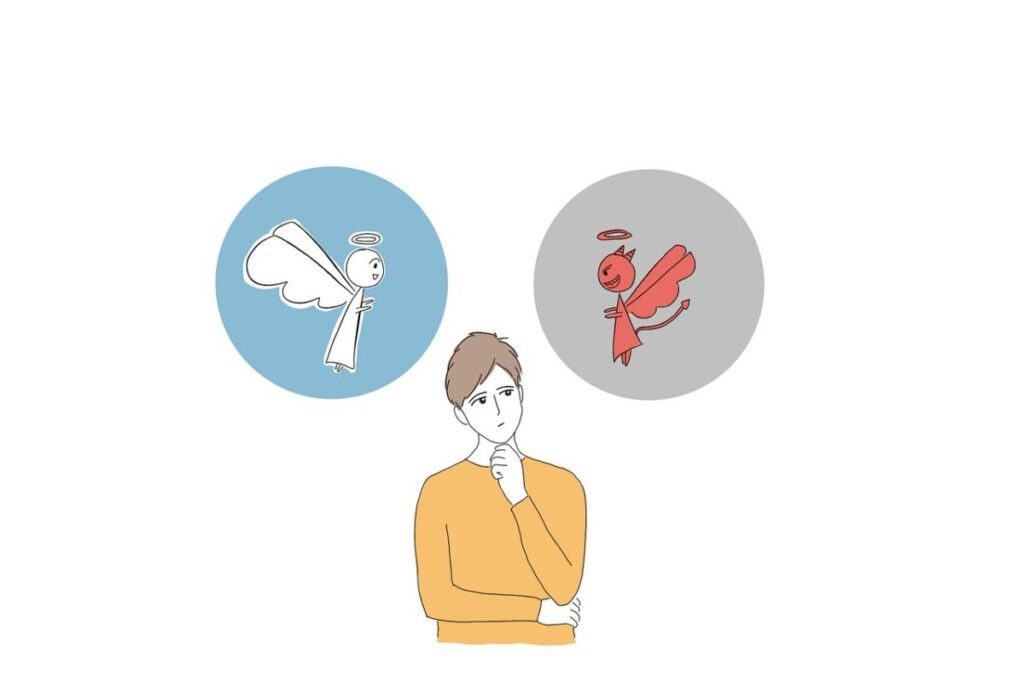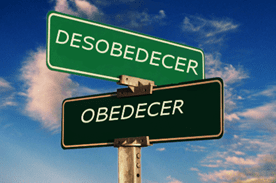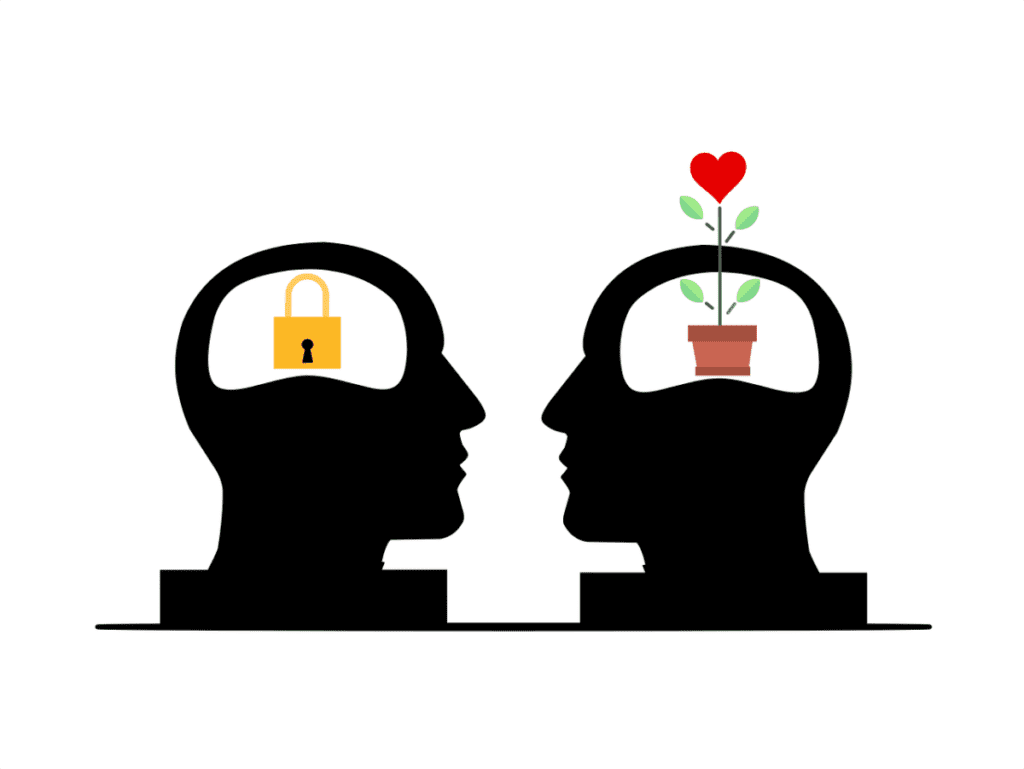The word psychology literally means “study of the soul” (ψυχή, psyché, “soul” – λογία, logia, “treatise”, “study”). This is not, however, what we see reflected in current – and long-standing – studies on the subject, because, as much as this area approaches the understanding of the soul as “the intelligent principle, rationality and thought”, it still seeks to in the cerebral matter the origin of all the characteristics of the individual
“Our brain, involuntarily, looks for elements to lean on, reinforce its convictions or interests, which leads to an individualized, own lifestyle. No matter what you use to strengthen or motivate your desires, your hopes, all the various forms are valid. People who don't believe in anything tend to be pessimistic and negative., because for them, nothing can happen to change their lives. For the dominion of reason binds man to what is earthly. Genetics explains the origin of faith.”
SOUZA, Andreia Maria S. “What is the soul: meaning in psychology and psychoanalysis”. Available at https://www.psicanaliseclinica.com/alma-o-que-e/. Accessed on 09/10/2022. Emphasis added.
As can be seen, even faith, for modern psychology, is still materialistic, conditioned, for it, to genetics and not to the soul (necessarily, therefore, in progress).
)).
The search area of to be human being, of his “psyché” (psyche) is predominantly characterized by the Aristotelian ideas that define the to be as a result of the body – ideas that, going through the centuries, created, contrary to the philosophy of Socrates and Plato, autonomous and spiritualist in essence, a regrettable heteronomous and materialist doctrine, which, in addition to removing from the to be the principles of autonomy and will gave rise to the absurd ideas of racism, eugenics and, in the individual field, heteronomy, which, from the individual, contaminates his social environment and, finally, defines social, philosophical and political structures.
Guided and contaminated by the Aristotelian idea, where the individual attributes, when purely materialistic, all his moral characteristics to the genetics of the body and, when “spiritualist”, to one or more beings acting as arbitrators (as if God, or “the gods” , whether vengeful, interfering) or evil-enhancing beings – the devil, demon(s), etc. – society mischaracterizes itself as social, becoming predominantly selfish and insulating the being in itself, aiming at the care of your material needs, instead of leading him to the understanding of his will as the principle of everything, in the daily exercise and in solidarity with the other.
Religions, finally, took away, for sectarian interests, the autonomy of the individual, to subordinate him to the whims and punishments of other beings, interfering, bellicose and vindictive, when not malicious, while science, not seeing rationality in the dogmatic principles of religions, denying it completely, denied human spirituality, only to fall into the same error, taking away the individual's autonomy by transforming him into a “ventriloquist's dummy” of body chemistry. It is not by chance that Darwinian eugenics was based on Aristotle, because, if on the one hand it is right in observing the natural fact of selection, on the other hand, it extends it to the human being, placing it, once again, as It is made of your body, and not as a determining factor about it. Darwin said: “Linaeus and Cuvier were my two deities, but they are nothing more than schoolboys compared to old Aristotle.”.
We did not know, however, that for an expressive amount of time, and in capital of the world From the 18th and 19th centuries, a philosophical current was born that resumed the concepts of the autonomy of the individual as a fundamental principle of existence and the definition of (or of) to be. a philosophy that defined at moral sciences French ((Says Paulo Henrique de Figueiredo in “Autonomia”: The first division of the sciences, presented in Paul Janet's Treatise on Philosophy, according to the structure prevailing at the Sorbonne University in the 19th century, was between:
a) The exact sciences or mathematics.
b) The natural sciences, which study the objects of the physical world (physics, chemistry, biology, etc.).
c) The moral sciences, which study the moral world, which comprises the actions and thoughts of the human race.
The moral sciences, in turn, were divided into four groups:
- The philosophical sciences, divided into two classes: psychological (psychology, logic, morals, aesthetics) and metaphysical (theodicy, rational psychology, rational cosmology).
- The historical sciences (history, archeology, epigraphy, numismatics, geography) study human events and development over time.
- The philological sciences (philology, etymology, paleography, etc.), whose object is language and human symbolic expression.
- The social and political sciences (politics, jurisprudence, political economy), which study the social life of human beings (JANET, 1885, p. 15-17).)) and which became a fundamental subject in the Normal School, in teacher training, and which later began to be adopted in lyceums and colleges, but which was surreptitiously erased from human history, together with two other philosophical sciences of the same foundation, as we will see below.
It was at the beginning of the 19th century that Maine de Biran and, later, Victor Cousin, among others, took up the concept of will as a principle psychologically elaborated by the soul, defining free will. For these thinkers – at a time when, as we have seen, philosophy was treated as a science – the autonomy of the individual is based on the will as a characteristic of the soul. From this fundamental principle, the principles that distanced the being from heteronomy were born, placing it as an autonomous agent of itself and, through its solidary action, of society. The individual was no longer a reflection of his genetics (or, as they thought at the time, their dispositions bile ((White bile defined good and black bile defined evil, in body chemistry. Based on this principle, many doctors performed bloodletting, often deadly, seeking to eliminate the black bile.)), but the primary reflection of its will.
This revolutionized the psychology of the time and totally transformed the moral sciences, as it placed the individual in the condition of being solely responsible for his moral conditions and choices. More: it started to deal with moral issues, under these principles, in order to separate what was external to the individual - the emotions (at the time called passions), pleasures, physical pain, etc. internal to the individual – the choices, born from the will of his soul (being that the soul would be, for them, the being that defines the will and that survives death, without, however, investigating it in that state) that, in the end, would determine your state of happiness or unhappiness.
This knowledge is fantastic and deserves to be recovered and studied! See: today, we define (or confuse) our state of happiness and unhappiness by external factors – if I don't have money to travel, or if I have a weakened body, or if I lost dear people, think unhappy, since happiness, for the current materialist thought, would be in the things of the world - parties, travel, money, etc. By understanding this morality defined by this spiritualist philosophy – rational spiritualism, as it became known – we begin to separate things: can I be unhappy because of a condition or event, or not having pleasures because of not having money, or having poor health, or physical limitations, but that is not what defines my happiness, for this is a construction of the will of my soul as far as morals are concerned, that is, in my striving for detachment of everything that arises from conditions external to my will. For example: as a condition external to my will, defined by my soul, there is the bodily impulse to react violently to a given situation; By allowing this impetus, which is born from the protective instinct, to dominate my will, I can perform actions that later make me regret (when I become aware), for what I will suffer. If I cling to such a way of acting, I will develop a habit and, hence, an addiction, which will make me suffer indefinitely, until, repenting, I consciously resolve to seek to detach myself from this error, in an effort that can only be autonomous. , and not imposed.
Perhaps the person who best defined these concepts is Paul Janet, in two main works: “Small Elements of Morals”, a very succinct and simple to read work (we recommend reading it!), available for download here and also available on Amazon Kindle, and “Elementary Treatise on Philosophy“, a much larger and more complex work.
But does not stop there. We mentioned the issue of black bile and white bile, which took over the medical concepts of the time and which, due to the absurd actions imposed on patients, such as bloodletting or “medicines”, which even mixed poison, weakened and sometimes killed the sick. Contrary to these ideas, still in the 18th century, Mesmer, observing some patients, arrived – in a very summarized way – to elaborate concepts that were also autonomous in the treatment of health, theorizing that the individual could also if heal by the action of your will. Hahnemann, with homeopathy, followed the same principle. For Mesmer, the external agent, acting through the will of the sick individual – what became known as magnetism – could help him to achieve, through persistent work, cures that, for many, would be impossible and, in some cases, almost miraculous (which, in fact, it was not: it is just an unknown science). Such was the accuracy of his theories that, already at that time, and against the scientific theories of the time, they were aligned with the concepts now in force and demonstrated by modern physics, such as those of the Quantum Field Theory and the existence of elementary matter, " quintessenced”, which gives rise to all matter (dark matter). It is all knowledge that would require a real book to treat it. As this book already exists, we recommend reading it: “Mesmer: the denied science of animal magnetism”, by Paulo Henrique de Figueiredo.
We also mentioned the question that the study of rational spiritualists was limited to understanding the soul as an agent of the will, external to the body and dominant over it, surviving death (by mere rational inference from the previous postulates), but with an unknown subsequent fate, since unobservable. It turns out, however, that “something” was happening, gaining ground for the establishment of a new science, born, at the time, like all the others: through the rational and methodological observation of the facts of nature.
Paulo Henrique de Figueiredo says, in “Mesmer: the denied science of animal magnetism”:
“The magnetizers proved very early on the relations of somnambulists with invisible beings. Deleuze, a disciple of Mesmer, in his correspondence with Dr GP Billot for more than four years, from March 1829 to August 1833, was initially reluctant, but eventually stated: “Magnetism demonstrates the spirituality of the soul and its immortality; he proves the possibility of communication between intelligences separated from matter with those still linked to them..” (BILLOT, 1839)”
[…]
Deleuze, in turn, stated: “I see no reason to deny the possibility of the appearance of people who, having left this life, take care of those they loved here and come to express themselves to them, to give them healthy advice. I just got an example of this.” (Ibid.)
[…]
“Years later, the magnetizer Louis Alphonse Cahagnet (1809-1885), with courage and determination, talked to the spirits through his ecstatic somnambulists, especially Adèle Maginot, recording in his work more than one hundred and fifty letters signed by witnesses who recognized the identity of the communicating spirits. Cahagnet anticipated this spiritist science research instrument by more than ten years.”
FIGUEIREDO. Mesmer: the denied science of animal magnetism.
We have arrived, therefore, at the birth of the spiritist science, a science, and not, as many believe, a “religion”. Being aware of the facts that swarmed across Europe (and the world, in fact) and, removing, through investigation, the quackery that only aimed to attract curious people and their bags of money, Professor Rivail ((Hippolyte Leon Denizard Rivail.)) set out, after much insistence from some known people, to a study that culminated in what became known as Spiritism, which, instead of being born, like all religious doctrines, from the isolated opinion of an individual or a group, was born from the rational analysis of thousands of communications, obtained from all “corners” of the world, in the same way that the magnetizers who preceded him also obtained theirs: through individuals placed in a state of somnambulism, induced by magnetism (from Mesmer). A fact was established, supported by reason: the soul, previously uninvestigatable, could, by its will, communicate through the soul of the individual placed in a somnambulistic state.
Through these communications, Allan Kardec, the name adopted by Rivail in order not to confuse his work as an educator and scientist with his new studies, inaugurated a new era in psychological study, because now, fully aligned with the concepts already developed by rational spiritualism, he studied the soul in its state, after death, of happiness or unhappiness, fruits of its choices. Not only: against the preconceived ideas he had, along with other scholars, regarding the origin of the soul, communications from countless Spirits evidenced, by reason, the law of reincarnation as a necessary element for the incessant progress of the Spirit ((Highlights Kardec, in his Magazine:
“Undoubtedly, say some opponents, you were imbued with such ideas and that is why the spirits agreed with your way of seeing. It is an error that proves, once again, the danger of hasty and unexamined judgments. If, before judging, such people had taken the trouble to read what we write about Spiritism, they would have spared themselves the trouble of such a light objection. We will therefore repeat what we have already said about it, that is, that when the doctrine of reincarnation was taught to us by the spirits, it was so far from our thinking that we had built a completely different system on the antecedents of the soul, a system that we actually shared. by many people. On this point, the doctrine of the Spirits surprised us. We'll say more: it upset us, because it overthrew our own ideas. As you can see, it was far from being a reflection of them.
This is not all. We don't give in to the first shock. We fight; we defend our opinion; we raise objections and only surrender in the face of evidence and when we realize the inadequacy of our system to resolve all issues relating to this problem.
In the eyes of some people, it may seem strange to use the term evidence, in such a subject, however, it will not be inappropriate for those who are used to scrutinizing spiritist phenomena. For the attentive observer, there are facts which, although not of an absolutely material nature, nevertheless constitute true evidence, at least moral evidence.
This is not the place to explain these facts, which can only be understood through continuous and persevering study. Our aim was only to refute the idea that this doctrine is nothing more than a translation of our thinking.”
KARDEC, Allan. Spirit Magazine. 1858.
)), in their choices to return to the subject, to continue their learning and, in many cases, to, after the repentance process, through your choices, and not by an arbitrary imposition, give rise to the necessary evidence for the search for detachment from habits and vices that, transformed into imperfections, led them to suffering.
Such studies complemented what Rational Spiritualism could not explain and demonstrated that the autonomy of the being, defined by his will and his free will, was indeed a determining factor in his progress and, consequently, in his state of happiness or unhappiness, as happiness would be the closer to the law natural would be, while unhappiness would be in fighting it, developing attachments. In recognizing the state of unhappiness and its reason, the Spirit would choose new opportunities that would provide learning, not being, under any circumstances, the effect of a punishment imposed by the mistake committed.
Here, dear reader, are the facts of the true psychological and philosophical revolution that, for more than a century, remained unknown to society, swept under the rug by a strong materialist reaction. Once recognized as a science, today, under the empire of a materialist – and inexact – understanding of what is science, is treated as pseudoscience, discredited and discredited under this classification. Here are the facts that, currently, are inconceivable to be addressed in the classrooms of philosophy, medicine, psychology and similar classes. Here are the facts, finally, that led the whole world to dive or remain under the fearsome principles that take away autonomy from being and that transform man into a veritable mass of flesh, defined by his body chemistry and, consequently, by his DNA. . Today, in general, one does not seek to investigate the origin of unhappiness, depression or disturbances by investigating the soul and its will: on the contrary, one seeks to investigate what is the gene of psychopathy, not considering that the “anomalies ” would be defined by the soul, not the other way around.
It happens, however, that the human being, precisely through spiritual progress, which does not cease, more and more search autonomy, because, slowly and progressively, it approaches, by reason itself, the verification and understanding of these principles, since the progress of the Spirit does not occur only in the state of incarnation. Autonomous ideas are starting to gain strength, both in society in general and in scientific circles, which, every day, come closer to this truth arbitrarily erased from human knowledge in the past. That is why, vehemently, we recommend the study of the cited works to, later, indicate, to those who feel compelled to do so, the study of the Spiritist Magazine, prepared by Kardec, from January 1858 to April 1869, where it is exposed, very clearly, the formation of this philosophical and moral doctrine that, in order to be well understood, lacks the understanding of the context in which it was born and formed.
We spoke of truth arbitrarily erased from human knowledge. Spiritism, having been the only scientific and philosophical doctrine that deepened the study of the psychology of the Spirit after the death of the body – this is why the Spiritist Magazine received, as subtitle, “Journal of Psychological Studies” – studied the facts that they were given rationally and with scientific methodology (which can be very well understood through a serious study of the work of Allan Kardec, and about which we have spoken a few times in our articles).
Duly contextualized in its time, the Spiritist Doctrine was so rational and logical, clear and, in a way, simple, that it “converted” ((Of course, the meaning given here to “convert” is to adopt principles and ideas of a doctrine, and not of affiliating with any religious system.)) countless people, even atheists and materialists, from the working classes to those occupying the highest social positions. Today, however, the Spiritist Movement, contaminated, for more than a century, by adulterations in Kardec's two final works and by ideas instilled in his environment, has lost precisely this rational and logical characteristic of an observational science. Currently, many move away from the spiritist environment precisely because they see their reasoning clashing with false concepts of debt payment, karma, divine punishment through reincarnation and unreasonable acceptance of any supposed spiritist psychography, without subjecting it, as Kardec recommended, to the scrutiny of reason.
This is why there is a need to study and get to know Spiritism in the original works ((The works Heaven and Hell and Genesis were respectively adulterated in their 4th and 5th editions, but the publisher FEAL currently already has the original works, with a huge amount of contextualizing notes by Paulo Henrique de Figueiredo.))] by Kardec. Spiritism Never it was a religion, nor was it born with the intention of competing with religions for a position that does not belong to it ((Kardec would say, in the Revista Espírita of 1862:
“With regard to the issue of the miracles of Spiritism that was proposed to us, and which we dealt with in our last issue, this is also proposed: 'The martyrs sealed the truth of Christianity with their blood; where are the martyrs of Spiritism?'
You are therefore very urged to see the Spiritists placed on the bonfire and thrown to the wild beasts! Which should make you suppose that your good will would not be lacking if that were still the case. You want, therefore, with all your strength to elevate Spiritism to the status of a religion! Note well that he never had that pretension; he never set himself up as a rival to Christianity, of which he claims to be the son; that he fights his cruelest enemies: atheism and materialism. Once again, it is a philosophy resting on the fundamental foundations of all religion, and on the morals of Christ.; if he denied Christianity, he would contradict himself, he would commit suicide. It is these enemies that show it as a new sect, which gives it priests and great priests. They will shout so much, and so often, that it is a religion, that one could end up believing in it. Is it necessary to be a religion to have its martyrs? Have not science, the arts, genius, work, at all times, had their martyrs, as have all new ideas?”
Allan Kardec – Spiritist Magazine of 1862
)). It is, first of all, a moral science, as we have demonstrated, but also a science born from the observation of the facts of nature. Studied as such, it removes prejudices and attacks the only real enemy of human autonomy, materialism, demonstrating it to be false and unsustainable.







